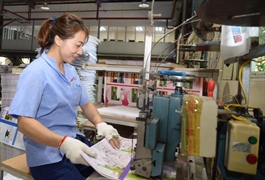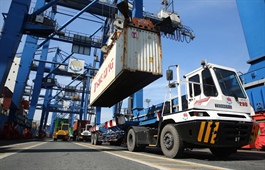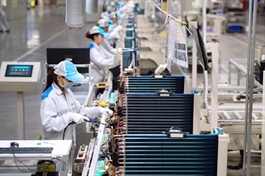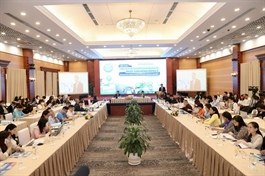Vietnamese Gov’t committed to ensuring fair access to development resources for enterprises
Vietnamese Gov’t committed to ensuring fair access to development resources for enterprises
Vietnam aims to have at least two million enterprises by 2030, contributing 60-65% of GDP.
The Vietnamese Government is committed to creating favorable conditions for enterprises from all economic sectors to have equitable access to development resources.
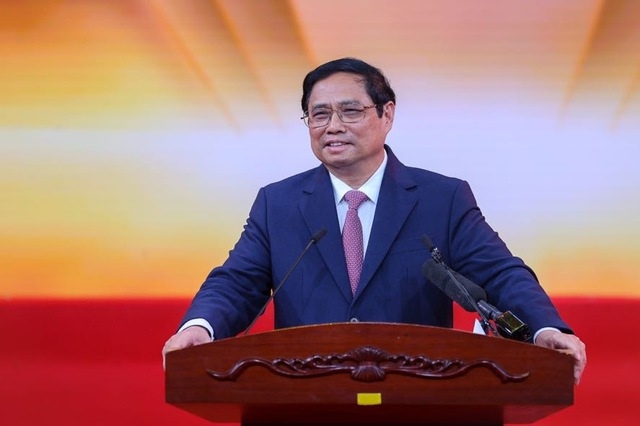
Prime Minister Pham Minh Chinh at the event. Source: VGP |
Prime Minister Pham Minh Chinh gave the remarks during a meeting today [October 12] to mark Vietnamese Entrepreneur's Day (October 13) and honor outstanding Vietnamese entrepreneurs in 2022.
According to Chinh, the State holds the business community in high regard, given their essential role in the nation's construction and development in the past and present.
Chinh noted as Vietnam is now the fourth largest economy in ASEAN and the 40th in the world, with trade turnover among the global top 20, Vietnamese businesses have been expanding in terms of quantity and quality.
"Businesses continue to be the pioneering force in creating jobs, contributing to social welfare, poverty reduction, and socio-economic development," he continued.
In particular, during the Covid-19 pandemic, Vietnamese businesses have been accompanying the State in overcoming difficulties and supporting the community in difficult times.
Chinh reiterated the Government's stance of fostering a strong business community of at least two million by 2030 and contributing to 60-65% of the GDP.
"To realize this ambitious goal, the Government would continue to enhance its operational efficiency to serve the people and business, ultimately contributing to the country's development," Chinh said.
In this context, the Prime Minister underlined the Government's priorities, which are the stabilization of the macroeconomy, the containment of inflation and the enhancement of economic resilience to external shocks.
Chinh expected the Government agencies to manage the exchange rate flexibly and channel credit into critical economic sectors to support growth.
"Vietnam would push for industrialization and modernization along with the construction of an independent economy and active global integration," Chinh said.
Chinh focused on developing the domestic market, facilitating trade, and diversifying export markets and supply chains, among measures to support local businesses.
In the long term, the Government would further refine the legal framework to better adapt to the actual situation, improve the business environment, and initiate dialogues with the business community to address their concerns.
For local businesses, Chinh called for entrepreneurs to take a leading role in socio-economic development, enhance corporate governance and further integrate into the global value chains.
"Businesses should take advantage of the recovery of the domestic market and expand their global reach for sustainable growth," he said.
Chinh hoped the country would have more companies at regional and international levels, along with many more billionaires, to reflect the development of Vietnam's economy in general and the private sector in particular.
Throughout this process, the Vietnam Chamber of Commerce and Industry (VCCI) should continue to fulfill its role as a national agency representing the Vietnamese business community and continue working for the benefit of the local companies in the new context.
With their resilience, creativity, vision, and desire for prosperity, Chinh expected Vietnamese companies would continue to move forward and contribute to Vietnam's rapid and sustainable development.
|
Vietnam currently has 900,000 operating companies, 14,400 cooperatives, and over 5 million business households. Together, they contribute over 60% of the country’s GDP and 30% of its workforce. Along with the rapid number of enterprises, the local business community has also expanded in revenue and productivity. |




